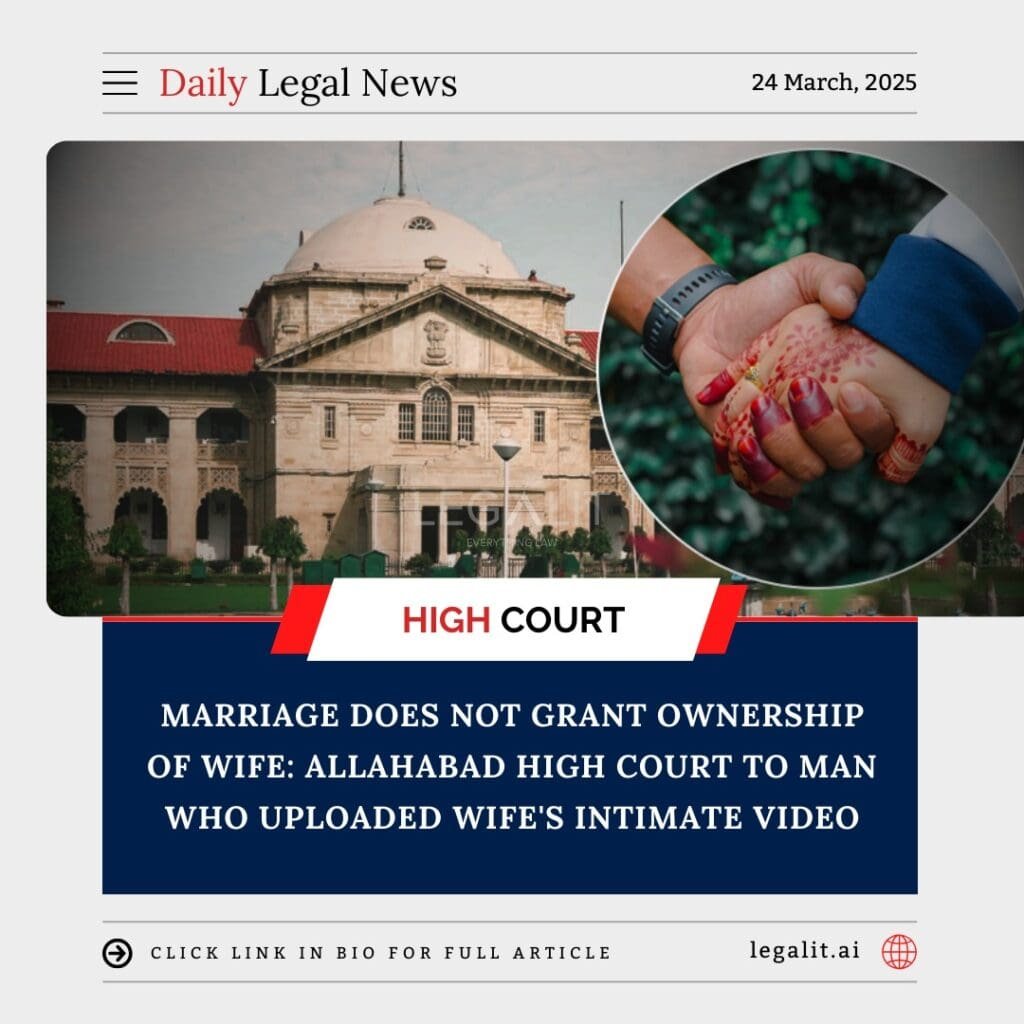
Background
The Allahabad High Court recently delivered a strong message emphasizing that marriage does not give a husband ownership over his wife. The court made this observation while denying bail to a man accused of uploading his wife’s intimate video without her consent. The case raises critical concerns about marital privacy, consent, and the legal implications of violating a spouse’s dignity through digital means.
Court’s Rationale
- Violation of Personal Autonomy
- The court highlighted that marriage does not strip a woman of her autonomy and personal rights.
- It asserted that a husband has no authority to infringe upon his wife’s privacy or use her personal content without consent.
- Marital Relationship Does Not Grant Ownership
- The court firmly rejected the argument that being married grants a husband ownership over his wife’s body or private moments.
- It emphasized that the law recognizes the individuality and dignity of every person, including within a marital relationship.
- Criminal Breach of Trust
- The court held that uploading intimate videos without consent constitutes a grave violation of trust and is punishable under Indian law.
- Such actions may attract charges under provisions of the Information Technology Act, 2000, and the Indian Penal Code (IPC) related to privacy and harassment.
Legal Framework
- Information Technology Act, 2000
- Section 66E: Punishes the capture, transmission, or publication of private images without consent.
- Section 67A: Addresses the publication of sexually explicit content, carrying serious penalties.
- Indian Penal Code (IPC)
- Section 354C: Criminalizes voyeurism, including sharing intimate images without consent.
- Section 509: Penalizes words, gestures, or acts intended to insult a woman’s modesty.
- Right to Privacy
- The Supreme Court’s Puttaswamy judgment affirms the right to privacy as a fundamental right under Article 21 of the Constitution.
- The High Court reiterated that marital ties do not dilute this right.
Broader Implications
- Protection of Marital Privacy
- The ruling reinforces that marriage does not diminish an individual’s right to bodily autonomy and privacy.
- Digital Consent and Accountability
- The decision underscores the need for legal accountability when personal content is misused in digital spaces, even within marital relationships.
- Setting a Precedent
- This judgment establishes a strong precedent against spousal abuse via technology and emphasizes that marriage cannot be a shield for violating the law.
Conclusion
The Allahabad High Court’s ruling affirms that marriage does not grant one spouse ownership over the other, particularly concerning personal privacy. By denying bail to the accused, the court sent a clear message that such actions constitute serious criminal offenses. This decision strengthens legal protections for marital privacy and holds individuals accountable for violating digital consent and trust.